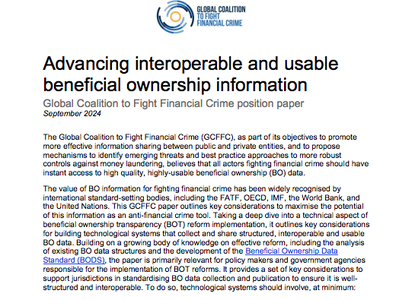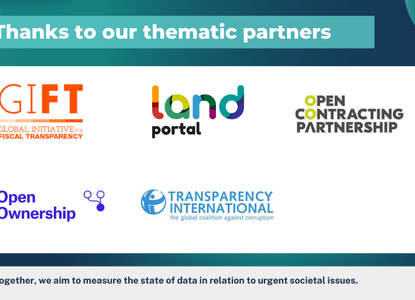Defining and capturing information on the beneficial ownership of investment funds
Help us understand how you are making use of resources from the Open Ownership website by filling out this short survey
Publication type
Briefing
Publication
Sections
Research
Summary
An investment fund generally refers to a type of collective scheme that pools together money from different investors, both individuals and institutions, to invest in different types of assets, including real or financial assets. With around USD 60 trillion in assets under management, investment funds play an important role in financing the global economy. While the investment industry is highly regulated in most countries, it also faces scrutiny over a lack of transparency, and recent cases demonstrate the potential for the misuse of investment funds for financial crime.
The nature of investment funds, which are characterised by rapid trading and numerous intermediaries, complicates the application of beneficial ownership transparency (BOT). Many jurisdictions have explicitly exempted some or all investment funds from disclosing information to a government beneficial ownership (BO) register. This policy briefing discusses how to define and capture information on the ownership and control of, and benefit derived from, investment funds organised as legal entities and legal arrangements. It also explores whether BO disclosure is an appropriate instrument to generate useful information for their oversight.
Broadly, the research concludes that including investment funds within the scope of a jurisdiction’s BOT regime can be a good approach to effectively regulating and preventing their misuse. The briefing provides considerations to help policymakers and those implementing or supporting BOT reforms to think through various issues and approaches toward ensuring effective transparency and oversight of investment funds. It also outlines recommendations for the operationalisation of BOT measures by identifying emerging practices in legal and policy reforms.
Key points
- Existing regulations of the investment funds sector and securities trading are primarily intended to protect current and potential investors. Despite the existence of anti-money laundering (AML) regulations in many jurisdictions, investment funds, especially private funds, may escape thorough scrutiny due to regulatory gaps and exemptions.
- The misuse of investment funds has been documented in multiple world regions; for a range of purposes, such as drug trafficking, corruption; and has involved a variety of investment markets, including stock markets, real estate, and professional sports.
- Given their risk of misuse, jurisdictions should avoid blanket exemptions for investment funds. Exemptions may be granted following an assessment of the sufficiency and effectiveness of existing disclosure and transparency requirements for investment funds, according to a jurisdiction’s policy aims.
- The structure of many investment funds and financial instruments split ownership, control, and benefit rights between different parties. To effectively apply BO disclosure requirements to investment funds, jurisdictions may need to refine the definition of beneficial ownership to include individuals who derive significant economic benefit from funds, not just those with direct control or ownership. Moreover, lower thresholds are essential to capture a wider range of relevant individuals and entities.
- Beneficial ownership information should be collected from an authorised person or fund manager responsible for making disclosures to the BO register. For investment funds that are not exempt, information should be collected in line with existing standards for other legal entities and arrangements. Whether or not full beneficial ownership information is available, it is important to accurately capture relationships between investment funds and other entities, as well as between corporate vehicles within an investment fund structure, to gain a picture of the full network of ownership.
- Given its mammoth size and high level of complexity, a comprehensive policy approach is needed to ensure full transparency and accountability. Examples of complementary measures to BOT include requiring all investment professionals to carry out AML practices in line with other financial institutions; ongoing risk assessments of national investment industries; and training for law enforcement.


